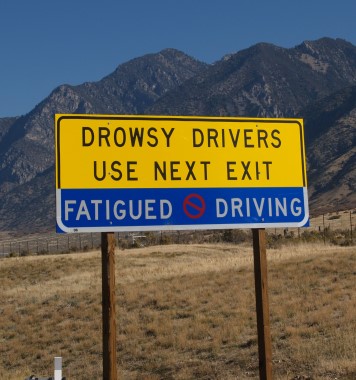CHP: Be Alert For Drowsy Driving During Spring Forward Weekend

Some of us will simply lose an hour sleep when the clock skips forward an hour this weekend because of daylight savings time.
With that in mind, the law enforcement wants to mention the dangers associated with drowsy driving.
“Drowsy driving can have the same effect on a person as drinking alcohol," said Joe Farrow, commissioner of the California Highway Patrol. "The skills required to be a safe driver are significantly reduced when you have not had enough sleep.”
Sleepy and fatigued drivers were responsible for more than 6,700 collisions in 2016, according to the CHP. And younger drivers are the highest risk.
Younger drivers account for the bulk of the fatigued crashes, according to the National Sleep Foundation. The NSF said more than half the time (55 percent) a drowsy driving collision occured last year, someone 25 or younger was at the wheel.
The foundation's annual Sleep in America poll returned revealing information about the occurances of drowsy driving.
About 60 percent of drivers admitted to driving while fatigued, and more than a third said they had fallen asleep at the wheel in the last year.
Symptoms of drowsy driving
- Yawning
- Trouble focusing
- Drifting into another lane
- Heavy eyelids
- Inability to remember the last stretch of road just driven
Below, the National Sleep Foundation offers some suggestions for avoiding drowsy driving:
- Let a passenger take over the driving.
- If all else fails, find a safe place to take a short nap by exiting the freeway or pulling into a rest stop, or stay somewhere for the night.
- Do not drive if you have been awake for 24 hours or more.
- If you feel sleepy, drink something with caffeine.